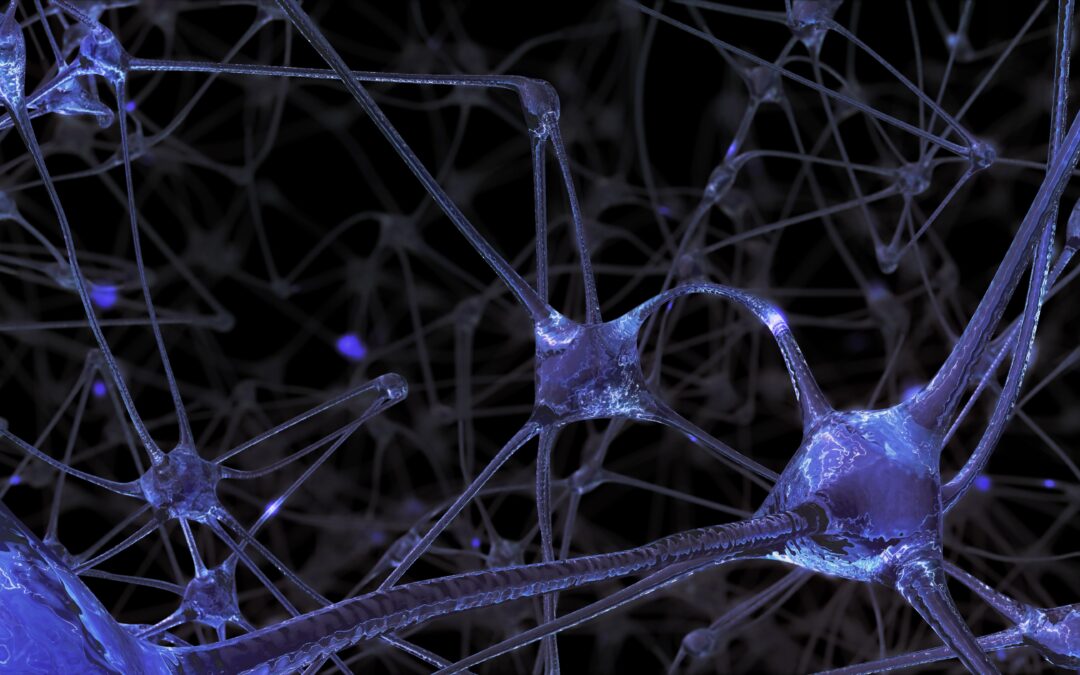Multiple Sclerosis and Cognitive Impairment
Multiple sclerosis (MS) is a chronic neurological disorder that affects the central nervous system, primarily targeting the brain, spinal cord, and optic nerves. It is characterised by the immune system attacking the protective myelin sheath surrounding nerve fibres, leading to communication disruptions between the brain and the rest of the body[1]. This demyelination process results in a wide range of symptoms, including visual disturbances, motor difficulties, sensory problems, and cognitive impairments.
Types of Multiple Sclerosis
There are several types of MS, each with distinct patterns of disease progression:
1. Relapsing-remitting MS (RRMS): This is the most common form, affecting approximately 85% of MS patients. RRMS is characterised by periods of symptom flare-ups (relapses) followed by periods of partial or complete recovery (remissions)[1].
2. Primary-progressive MS (PPMS): In this type, symptoms gradually worsen from the onset of the disease, without distinct relapses or remissions[1].
3. Secondary-progressive MS (SPMS): Some individuals with RRMS may eventually transition to SPMS, where symptoms steadily worsen over time, with or without occasional relapses[1].
Cognitive Impairments in Multiple Sclerosis
Cognitive impairment is a common and often debilitating symptom of MS, affecting up to 70% of patients. These cognitive deficits can emerge early in the disease course and significantly impact patients’ quality of life, employment status, and social interactions. The most frequently observed cognitive impairments in MS include:
1. Working memory deficits
2. Information processing speed decline
3. Attention problems
4. Executive function impairments
5. Long-term memory issues
6. Verbal fluency difficulties
Among these, working memory impairments are particularly prevalent and can have far-reaching consequences on patients’ daily functioning.
Working Memory in Multiple Sclerosis
Working memory (WM) refers to the cognitive system responsible for temporarily holding and manipulating information necessary for complex cognitive tasks such as learning, reasoning, and comprehension. In MS patients, WM deficits are common and can manifest as difficulties in multitasking, following conversations, or remembering instructions.
Research has shown that WM impairments in MS patients are associated with abnormal brain activity patterns. Functional magnetic resonance imaging (fMRI) studies have revealed that MS patients often exhibit increased activation in brain regions associated with WM tasks, particularly in the frontoparietal network. This hyperactivation is thought to represent a compensatory mechanism, where the brain recruits additional resources to maintain cognitive performance in the face of neural damage.
Working Memory Training in Multiple Sclerosis
Given the prevalence and impact of WM deficits in MS, there has been growing interest in the potential of cognitive rehabilitation interventions, particularly WM training, to improve cognitive function in these patients. Several studies have investigated the efficacy of WM training in MS populations, with promising results.
Efficacy of Working Memory Training
A study by Aguirre et al. (2019) examined the effects of an adaptive n-back training program on both MS patients and healthy controls. The researchers found that after four days of intensive training, both groups showed significant improvements in task performance, including reduced reaction times and increased accuracy. Importantly, these behavioural improvements were accompanied by changes in brain activation patterns, with trained participants showing decreased activation in the WM frontoparietal network during task performance.
These findings suggest that WM training can lead to more efficient neural processing, allowing patients to perform cognitive tasks with less effort. The study also demonstrated that the benefits of training persisted at a follow-up assessment 35 days later, indicating the potential for long-term cognitive improvements.
Another study by Vogt et al. (2009) investigated the effects of a computer-based WM training program on fatigue symptoms and cognitive performance in MS patients. The researchers found that the training led to significant improvements in fatigue symptoms, working memory capacity, and mental speed. These results highlight the potential of WM training to address multiple aspects of MS-related cognitive dysfunction.
Neural Mechanisms of Working Memory Training
Research has also shed light on the neural mechanisms underlying the benefits of WM training in MS. A study by Aguirre et al. (2021) used fMRI to examine changes in brain connectivity following an intensive computerised WM training program. The researchers found that both MS patients and healthy controls showed enhanced frontoparietal connectivity after training, which was associated with improved task performance.
This increased connectivity within the frontoparietal network, which is crucial for WM function, suggests that WM training may promote neuroplasticity and strengthen the neural circuits involved in cognitive processing. Such neuroplastic changes could potentially help compensate for MS-related brain damage and improve cognitive function.
Cognitive Reserve and Working Memory Training
The concept of cognitive reserve is particularly relevant in the context of MS and WM training. Cognitive reserve refers to the brain’s ability to cope with damage and maintain function through the use of pre-existing cognitive processing approaches or the recruitment of compensatory mechanisms.
Research has suggested that WM training may help build cognitive reserve in MS patients. By strengthening WM capacity and promoting more efficient neural processing, WM training could potentially enhance patients’ ability to cope with MS-related brain damage and maintain cognitive function.
Challenges and Future Directions
While the results of WM training studies in MS are promising, several challenges and areas for future research remain:
1. Optimal training protocols: Further research is needed to determine the most effective training duration, frequency, and intensity for maximising cognitive benefits in MS patients.
2. Transfer effects: While studies have shown improvements in trained tasks, more research is needed to investigate whether these benefits transfer to untrained cognitive domains and real-world functioning.
3. Individual differences: MS is a heterogeneous disease, and patients may respond differently to WM training. Future studies should explore factors that may influence training efficacy, such as disease subtype, cognitive reserve, and baseline cognitive function.
4. Long-term effects: While some studies have shown persistent benefits of WM training, more long-term follow-up studies are needed to determine the durability of cognitive improvements and whether booster sessions may be necessary.
5. Combination with other interventions: Future research should explore the potential synergistic effects of combining WM training with other cognitive rehabilitation approaches, pharmacological treatments, or lifestyle interventions.
Conclusion
Working memory impairments are common and debilitating symptoms of multiple sclerosis, often emerging early in the disease course. However, recent research has shown promising results for the use of working memory training as a cognitive rehabilitation intervention in MS patients. Studies have demonstrated that WM training can lead to improvements in cognitive performance, reductions in fatigue symptoms, and changes in brain activation patterns and connectivity.
These findings suggest that WM training may promote neuroplasticity and help build cognitive reserve in MS patients, potentially enhancing their ability to cope with disease-related brain damage. While challenges remain, including determining optimal training protocols and investigating long-term effects, WM training represents a promising avenue for improving cognitive function and quality of life in individuals with multiple sclerosis.
As research in this field continues to advance, it is likely that WM training will play an increasingly important role in comprehensive MS management strategies, offering hope for improved cognitive outcomes in this challenging neurological disorder.
References
Aguirre, N., Cruz-Gómez, Á. J., Miró-Padilla, A., Bueichekú, E., Broseta Torres, R., Ávila, C., … & Forn, C. (2019). Repeated working memory training improves task performance and neural efficiency in multiple sclerosis patients and healthy controls. Multiple Sclerosis Journal–Experimental, Translational and Clinical, 5(2), 2055217319887952.
Aguirre, N., Cruz-Gómez, Á. J., Félix Esbrí, S., Miró-Padilla, A., Bueichekú, E., Broseta-Torres, R., … & Forn, C. (2021). Enhanced frontoparietal connectivity in multiple sclerosis patients and healthy controls in response to an intensive computerized training focused on working memory. Multiple Sclerosis and Related Disorders, 51, 102930.
Filippi, M., Bar-Or, A., Piehl, F., Preziosa, P., Solari, A., Vukusic, S., & Rocca, M. A. (2018). Multiple sclerosis. Nature Reviews Disease Primers, 4(1), 1-27.
Sumowski, J. F., Benedict, R., Enzinger, C., Filippi, M., Geurts, J. J., Hamalainen, P., … & Rocca, M. A. (2018). Cognition in multiple sclerosis: State of the field and priorities for the future. Neurology, 90(6), 278-288.
Vogt, A., Kappos, L., Calabrese, P., Stöcklin, M., Gschwind, L., Opwis, K., & Penner, I. K. (2009). Working memory training in patients with multiple sclerosis–comparison of two different training schedules. Restorative Neurology and Neuroscience, 27(3), 225-235.

